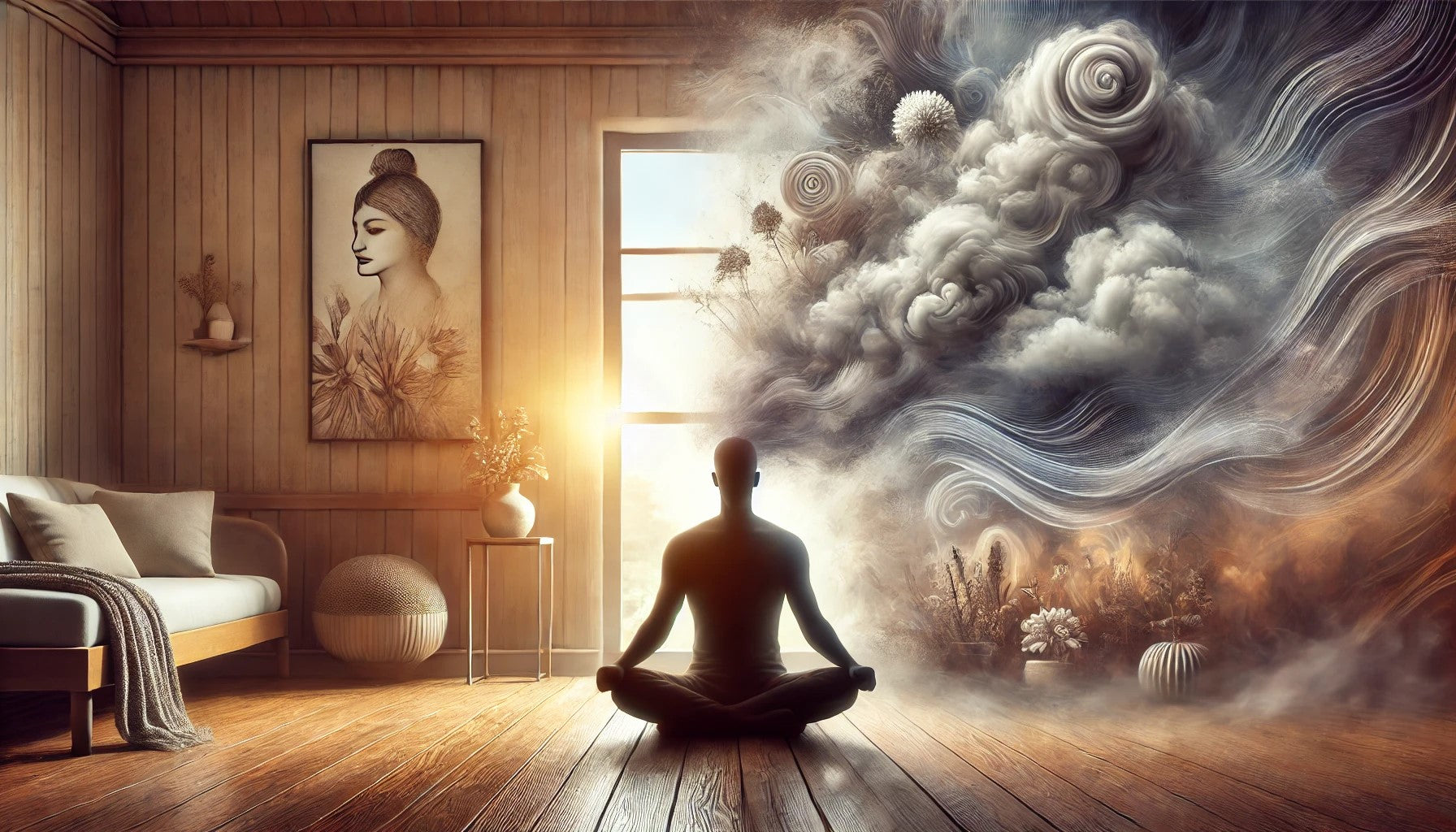
The Surprising Truth About Meditation: It's Not What You Think
Picture this: You're sitting cross-legged on a cushion, eyes closed, trying to find your "inner peace." But instead of blissful calm, you're fidgeting, your mind is racing, and you're wondering if you're doing it all wrong.
Sound familiar?
If so, you're not alone. And here's the kicker: You might be closer to "real" meditation than you think.
The Great Meditation Misunderstanding
Let's address the elephant in the room:
Meditation is not about feeling good. It's about feeling what you're feeling with good awareness.
This might come as a shock if you've been chasing that elusive "meditation high." But stick with me, because there's a plot twist coming that might just change your entire perspective on meditation.
The Myth of Instant Zen
We've all seen those images: serene faces, peaceful settings, an air of otherworldly calm. It's no wonder we expect meditation to be an express ticket to Tranquility Town.
But here's the truth: Real meditation isn't about escaping your emotions or zoning out from life. It's about diving headfirst into the full spectrum of your experience - the good, the bad, and the downright uncomfortable.
Awareness: The Heart of Meditation
So if meditation isn't about feeling good, what is it about? In a word: awareness.
Imagine your mind as a bustling city. Thoughts, emotions, and sensations are like the citizens, all clamoring for attention. Most of the time, we're caught up in the noise, reacting to every honk and shout.
Meditation is like finding a quiet rooftop above it all. You can still see and hear the hustle and bustle, but you're not caught in the middle of it. You're observing with clarity and calm.
This is what we mean by "feeling what you're feeling with good awareness." It's about:
- Noticing your thoughts and emotions
- Acknowledging them without judgment
- Allowing them to be there without trying to change them
The Counterintuitive Path to Peace
Now, you might be thinking, "If I'm not trying to feel good, what's the point?"
Here's where it gets interesting. By allowing yourself to fully experience and accept your emotions - even the uncomfortable ones - something remarkable happens:
You start to feel better.
Not in a superficial, "let's-ignore-the-bad-stuff" way. But in a deep, lasting way that comes from true self-acceptance and emotional resilience.
The Meditation Plot Twist
Remember that plot twist I mentioned? Here it is:
Eventually, feeling what you're feeling with awareness does make you feel good.
It's the ultimate paradox of meditation. By letting go of the need to feel good, you open the door to a more profound sense of well-being.
Here's why:
- You stop fighting reality: When you accept your emotions instead of resisting them, you reduce inner conflict.
- You develop emotional intelligence: Regular practice helps you understand and manage your emotions more effectively.
- You build resilience: Facing discomfort in meditation makes you better equipped to handle life's challenges.
- You cultivate self-compassion: Learning to sit with difficult emotions without judgment fosters a kinder relationship with yourself.
Putting It Into Practice: A 5-Step Guide
Ready to experience this for yourself? Here's a simple guide to get you started:
- Set the stage: Find a quiet spot and get comfortable. Remember, the goal isn't to feel good, but to feel fully.
- Check in: Take a moment to notice how you're feeling. Anxious? Tired? Excited? Whatever it is, acknowledge it without trying to change it.
- Focus on your breath: Use your breath as an anchor to keep you present. Notice the sensation of breathing in and out.
- Observe your experience: As thoughts and emotions arise, notice them. Think of yourself as a curious scientist, observing but not interfering.
- Practice acceptance: Whatever comes up, try to accept it as part of your current experience. If you notice yourself resisting, that's okay too. Just observe the resistance without judgment.
The Long Game: Patience and Persistence
Here's the thing: This approach to meditation isn't always easy. There will be days when you'd rather do anything than sit with your uncomfortable feelings. That's normal.
The key is to keep showing up, day after day. It's not about perfection; it's about practice.
Over time, you'll start to notice changes:
- You might find yourself less reactive in stressful situations.
- You could discover a newfound sense of calm amidst life's chaos.
- You may even start to appreciate the full range of your emotional experience, finding value in both the highs and the lows.
The Ultimate Meditation Paradox
So here we are, back at our starting point, but with a twist:
Meditation isn't about feeling good. It's about feeling fully, with awareness. And paradoxically, this is what leads to genuine, lasting well-being.
The next time you sit down to meditate, remember: You're not there to escape your feelings. You're there to meet them, greet them, and through this courageous act of presence, transform your relationship with your entire emotional landscape.
Now that's something worth meditating on.

